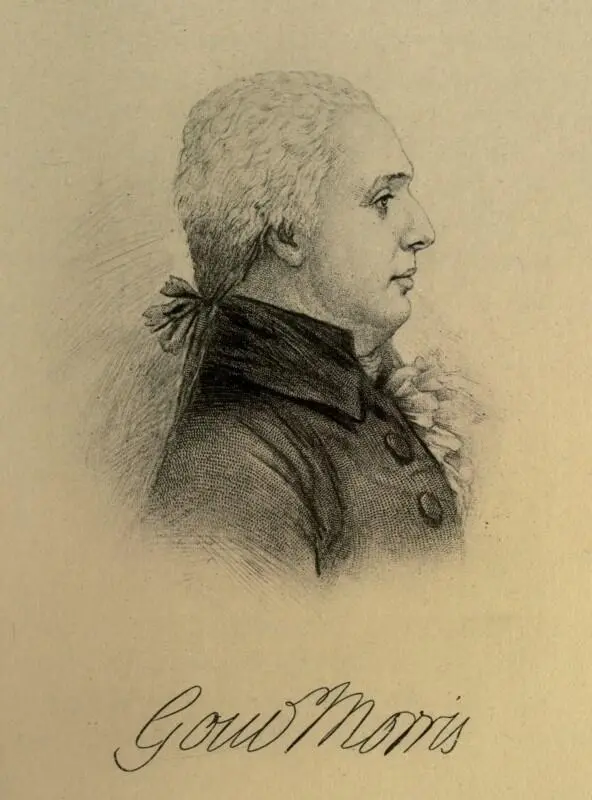Albert Beveridge - The Life of John Marshall, Volume 3 - Conflict and construction, 1800-1815
Здесь есть возможность читать онлайн «Albert Beveridge - The Life of John Marshall, Volume 3 - Conflict and construction, 1800-1815» — ознакомительный отрывок электронной книги совершенно бесплатно, а после прочтения отрывка купить полную версию. В некоторых случаях можно слушать аудио, скачать через торрент в формате fb2 и присутствует краткое содержание. Жанр: foreign_prose, foreign_antique, Биографии и Мемуары, foreign_language, на английском языке. Описание произведения, (предисловие) а так же отзывы посетителей доступны на портале библиотеки ЛибКат.
- Название:The Life of John Marshall, Volume 3: Conflict and construction, 1800-1815
- Автор:
- Жанр:
- Год:неизвестен
- ISBN:нет данных
- Рейтинг книги:4 / 5. Голосов: 1
-
Избранное:Добавить в избранное
- Отзывы:
-
Ваша оценка:
- 80
- 1
- 2
- 3
- 4
- 5
The Life of John Marshall, Volume 3: Conflict and construction, 1800-1815: краткое содержание, описание и аннотация
Предлагаем к чтению аннотацию, описание, краткое содержание или предисловие (зависит от того, что написал сам автор книги «The Life of John Marshall, Volume 3: Conflict and construction, 1800-1815»). Если вы не нашли необходимую информацию о книге — напишите в комментариях, мы постараемся отыскать её.
The Life of John Marshall, Volume 3: Conflict and construction, 1800-1815 — читать онлайн ознакомительный отрывок
Ниже представлен текст книги, разбитый по страницам. Система сохранения места последней прочитанной страницы, позволяет с удобством читать онлайн бесплатно книгу «The Life of John Marshall, Volume 3: Conflict and construction, 1800-1815», без необходимости каждый раз заново искать на чём Вы остановились. Поставьте закладку, и сможете в любой момент перейти на страницу, на которой закончили чтение.
Интервал:
Закладка:
In opening the debate, Senator Breckenridge confined himself closely to the point that the new Federalist judges were superfluous. "Could it be necessary," he challenged the Federalists, "to increase courts when suits were decreasing ? … to multiply judges, when their duties were diminishing?" No! "The time never will arrive when America will stand in need of thirty-eight Federal Judges." 172 172 Annals , 7th Cong. 1st Sess. 26.
The Federalist Judiciary Law was "a wanton waste of the public treasure." 173 173 Ib. 25.
Moreover, the fathers never intended to commit to National judges "subjects of litigation which … could be left to State Courts." Answering the Federalist contention that the Constitution guaranteed to National judges tenure of office during "good behavior" and that, therefore, the offices once established could not be destroyed by Congress, the Kentucky Senator observed that "sinecure offices, … are not permitted by our laws or Constitution." 174 174 Ib. 28.
James Monroe, then in Richmond, hastened to inform Breckenridge that "your argument … is highly approved here." But, anxiously inquired that foggy Republican, "Do you mean to admit that the legislature [Congress] has not a right to repeal the law organizing the supreme court for the express purpose of dismissing the judges when they cease to possess the public confidence?" If so, "the people have no check whatever on them … but impeachment." Monroe hoped that "the period is not distant" when any opposition to "the sovereignty of the people" by the courts, such as "the application of the principles of the English common law to our constitution," would be considered "good cause for impeachment." 175 175 Monroe to Breckenridge, Jan. 15, 1802, Breckenridge MSS. Lib. Cong.
Thus early was expressed the Republican plan to impeach and remove Marshall and the entire Federal membership of the Supreme Court so soon to be attempted. 176 176 See infra , chaps. iii and iv.

In reply to Breckenridge, Senator Jonathan Mason of Massachusetts, an accomplished Boston lawyer, promptly brought forward the question in the minds of Congress and the country. "This," said he, "was one of the most important questions that ever came before a Legislature." Why had the Judiciary been made "as independent of the Legislature as of the Executive?" Because it was their duty "to expound not only the laws, but the Constitution also; in which is involved the power of checking the Legislature in case it should pass any laws in violation of the Constitution." 177 177 Annals , 7th Cong. 1st Sess. 31-32.
The old system which the Republicans would now revive was intolerable, declared Senator Gouverneur Morris of New York. "Cast an eye over the extent of our country" and reflect that the President, "in selecting a character for the bench, must seek less the learning of a judge than the agility of a post boy." Moreover, to repeal the Federal Judiciary Law would be "a declaration to the remaining judges that they hold their offices subject to your [Congress's] will and pleasure." Thus "the check established by the Constitution is destroyed."
Morris expounded the conservative Federalist philosophy thus: "Governments are made to provide against the follies and vices of men… Hence, checks are required in the distribution of power among those who are to exercise it for the benefit of the people." The most efficient of these checks was the power given the National Judiciary – "a check of the first necessity, to prevent an invasion of the Constitution by unconstitutional laws – a check which might prevent any faction from intimidating or annihilating the tribunals themselves." 178 178 Annals , 7th Cong. 1st Sess. 38.
Let the Republican Senators consider where their course would end, he warned. "What has been the ruin of every Republic? The vile love of popularity. Why are we here? To save the people from their most dangerous enemy; to save them from themselves ." 179 179 This unfortunate declaration of Morris gave the Republicans an opportunity of unlimited demagogic appeal. See infra . (Italics the author's.)
Do not, he besought, "commit the fate of America to the mercy of time and chance." 180 180 Annals , 7th Cong. 1st Sess. 40-41. Morris spoke for an hour. There was a "large audience, which is not common for that House." He prepared his speech for the press. ( Diary and Letters of Gouverneur Morris : Morris, ii, 417.)
"Good God!" exclaimed Senator James Jackson of Georgia, "is it possible that I have heard such a sentiment in this body? Rather should I have expected to have heard it sounded from the despots of Turkey, or the deserts of Siberia. 181 181 Annals , 7th Cong. 1st Sess. 49.
… I am more afraid of an army of judges, … than of an army of soldiers… Have we not seen sedition laws?" The Georgia Senator "thanked God" that the terrorism of the National Judiciary was, at last, overthrown. "That we are not under dread of the patronage of judges, is manifest, from their attack on the Secretary of State." 182 182 Ib. 47-48. Senator Jackson here refers to the case of Marbury vs. Madison, then pending before the Supreme Court. (See infra , chap. iii.) This case was mentioned several times during the debate. It is plain that the Republicans expected Marshall to award the mandamus, and if he did, to charge this as another act of judicial aggression for which, if the plans already decided upon did not miscarry, they would make the new Chief Justice suffer removal from his office by impeachment. (See infra , chap. iv.)
Senator Uriah Tracy of Connecticut was so concerned that he spoke in spite of serious illness. "What security is there to an individual," he asked, if the Legislature of the Union or any particular State, should pass an ex post facto law? "None in the world" but revolution or "an appeal to the Judiciary of the United States, where he will obtain a decision that the law itself is unconstitutional and void." 183 183 Annals , 7th Cong. 1st Sess. 58. Tracy's speech performed the miracle of making one convert. After he closed he was standing before the glowing fireplace, "half dead with his exertions." Senator Colhoun of South Carolina came to Tracy, and giving him his hand, said: "You are a stranger to me, sir, but by – you have made me your friend." Colhoun said that he "had been told a thousand lies" about the Federalist Judiciary Act, particularly the manner of passing it, and he had, therefore, been in favor of repealing it. But Tracy had convinced him, and Colhoun declared: "I shall be with you on the question." "May we depend upon you?" asked Tracy, wringing the South Carolina Senator's hand. "By – you may," was the response. (Morison: Life of the Hon. Jeremiah Smith , footnote to 147.) Colhoun kept his word and voted with the Federalists against his party's pet measure. ( Annals , 7th Cong. 1st Sess. 185.) The correct spelling of this South Carolina Senator's name is Colhoun , and not C a lhoun, as given in so many biographical sketches of him. (See South Carolina Magazine for July, 1906.)
That typical Virginian, Senator Stevens Thompson Mason, able, bold, and impetuous, now took up Gouverneur Morris's gage of battle. He was one of the most fearless and capable men in the Republican Party, and was as impressive in physical appearance as he was dominant in character. He was just under six feet in height, yet heavy with fat; he had extraordinarily large eyes, gray in color, a wide mouth with lips sternly compressed, high, broad forehead, and dark hair, thrown back from his brow. Mason had "wonderful powers of sarcasm" which he employed to the utmost in this debate. 184 184 See Grigsby: Virginia Convention of 1788 , ii, 260-262. This was the same Senator who, in violation of the rules of the Senate, gave to the press a copy of the Jay Treaty which the Senate was then considering. The publication of the treaty raised a storm of public wrath against that compact. (See vol. ii, 115, of this work.) Senator Mason's action was the first occurrence in our history of a treaty thus divulged.
Интервал:
Закладка:
Похожие книги на «The Life of John Marshall, Volume 3: Conflict and construction, 1800-1815»
Представляем Вашему вниманию похожие книги на «The Life of John Marshall, Volume 3: Conflict and construction, 1800-1815» списком для выбора. Мы отобрали схожую по названию и смыслу литературу в надежде предоставить читателям больше вариантов отыскать новые, интересные, ещё непрочитанные произведения.
Обсуждение, отзывы о книге «The Life of John Marshall, Volume 3: Conflict and construction, 1800-1815» и просто собственные мнения читателей. Оставьте ваши комментарии, напишите, что Вы думаете о произведении, его смысле или главных героях. Укажите что конкретно понравилось, а что нет, и почему Вы так считаете.












